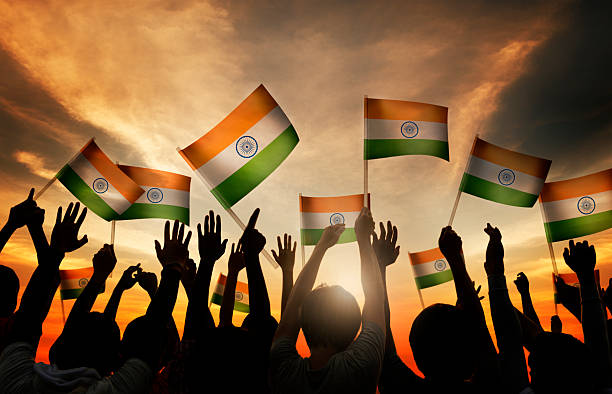These days, patriotism has been increasingly being viewed solely through a political and religious lens, with varying interpretations influenced by these factors.

However, patriotism goes far beyond political parties and religious beliefs. True patriotism lies in a deep, unwavering love for one’s country, a sense of duty, and a commitment to contributing to its prosperity.
Let’s talk about the true concept of patriotism beyond politics and religion, emphasizing collective pride and the overall mission of building a strong nation.
Table of Contents
Patriotism Beyond Politics and Religion in a Globalized World
In today’s globalized world, patriotism can no longer be confined to loyalty toward political parties or religious beliefs. True patriotism stems from a broader vision – a deep-rooted love for one’s country, focused on its progress and prosperity rather than political or religious differences.
Globalization has blurred traditional national boundaries, making it increasingly necessary to view patriotism as a commitment to a nation’s place in the world, emphasizing unity, inclusivity, and collective growth.
The concept of patriotism must evolve to reflect the modern realities of interconnected economies and cultures. APJ Abdul Kalam, former President of India, was a strong advocate for this type of patriotism.
He urged citizens to embrace a sense of mission that focused on developing their country into a prosperous nation driven by technological innovation, education, and economic progress. Kalam’s vision of a developed nation was not limited to its military or political influence but rather its capacity to uplift all its people, regardless of their diverse backgrounds.
In a globalized context, a sense of patriotism should transcend borders, encouraging collaboration between nations for the common good. This modern view of patriotism focuses on shared values of justice, equality, and human dignity, enabling countries to thrive on the world stage while maintaining a strong internal foundation.
True patriotism, in this sense, is not defined by political allegiances or religious doctrines but by a sense of mission to improve the nation as a whole and make it a key player in the global community.

How Patriotism Beyond Politics and Religion Strengthens Communities
Patriotism that goes beyond politics and religion plays a crucial role in strengthening local communities. When citizens focus on the well-being of their fellow compatriots, regardless of political or religious affiliations, they foster unity and cooperation. This form of true patriotism fosters a collective effort toward national development, helping to bridge the gaps that often divide societies along political or religious lines.
As Amartya Sen, a prominent economist and philosopher, has noted, focusing on collective pride rather than individual or sectarian interests is crucial for building a strong nation. A country where citizens unite for the common good, rather than focusing on political differences or religious differences, becomes resilient and more capable of addressing challenges such as poverty, inequality, and environmental sustainability.
Communities that embrace patriotism beyond politics and religion are empowered to pursue economic victory, social harmony, and technological advancement. Such a nation thrives when its citizens work together, leveraging their unique talents and perspectives for the collective good. When religious beliefs and political parties take a backseat to national interests, a country can achieve unity and progress, leading to a stronger, more resilient nation.
The Role of Education in Fostering Patriotism Beyond Politics and Religion
One of the most effective ways to foster patriotism beyond politics and religion is through education. Education plays a pivotal role in shaping citizens who are not only knowledgeable but also deeply invested in their country’s well-being. A strong education system can promote collective pride and a sense of mission among students, encouraging them to work toward the common goal of national prosperity.
Dr. APJ Abdul Kalam placed a significant emphasis on education as a means of fostering national pride and innovation. He believed that through education, citizens could rise above the fragmented thinking that often comes with political differences or religious beliefs.
Education cultivates critical thinking, enabling individuals to understand the broader implications of their actions on their country and fostering a deeper sense of responsibility and commitment to the nation’s development.
Education also has the power to unite people from diverse backgrounds, creating a shared understanding of what it means to be a patriot in the modern world. It teaches students to value their country’s achievements, to learn from its challenges, and to contribute meaningfully to its future.
Furthermore, education helps build a strong nation by empowering citizens with the skills and knowledge necessary to contribute to national progress. When people are educated, they are better equipped to participate in the democratic process, engage in community service, and innovate in ways that benefit the entire country.
True patriotism thus becomes an integral part of a person’s education, guiding them toward making choices that positively impact their country.

Conclusion
Essentially, patriotism beyond politics and religion is about adopting a more inclusive, forward-looking vision of what it means to love and serve one’s country.
It is rooted in a deep sense of mission to contribute to the nation’s development, whether through innovation, education, or civic engagement. By moving beyond the divisive forces of religious beliefs and political parties, citizens can focus on what truly matters: building a prosperous nation that benefits everyone.
By embracing patriotism beyond politics and religion, we can build stronger communities, foster innovation, and ensure that our country remains united and strong in an ever-changing world.
FAQs
What was Abdul Kalam’s aim?
Dr. APJ Abdul Kalam aimed to transform India into a developed and self-reliant nation through advancements in science, technology, and education while empowering the youth and promoting national unity and inclusivity. He envisioned an India where progress benefited all citizens, particularly through knowledge and innovation.
What is the ideology of patriotism?
The ideology of patriotism is centred around love, devotion, and loyalty to one’s country. It prioritizes the nation’s welfare and progress over individual or group interests.
Is patriotism an attitude?
Yes, patriotism is considered an attitude. It reflects an emotional attachment, loyalty, and commitment to one’s country, often demonstrated through actions or expressions that prioritize the nation’s well-being.









